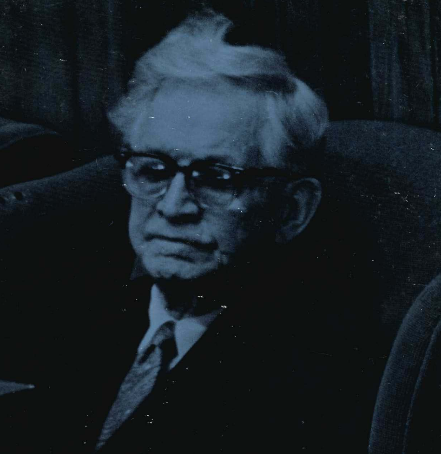Articles/Essays – Volume 04, No. 4
President David O. McKay: 1873-1970: My Memories of President David O. McKay
My first recollection of David O. McKay is a sermon he gave in a Sacrament Meeting which led me as a teenager to engage in critical self-examination and to leave the meeting with high resolve.
Despite the nervousness and excitement I felt in getting married, I still remember three principles he gave my wife and me forty years ago, in his introductory remarks preceding his celebration of our marriage: live within your means, practice the courtesy and chivalry of courtship throughout your marriage, and trust one another and be worthy of that trust, “for to be trusted is greater than to be loved.”
Over a period of about thirty years while engaged in teaching religion to L.D.S. college youth, I was privileged either at his invitation or my request to have a half-dozen conversations with him about questions critical to me at the time. Looking back I marvel at the trust he placed in me, at his tolerance for those who disagreed with him—a prophet of God—and at his love of life in its intellectual, aesthetic, social, as well as spiritual dimensions.
President McKay invited me in to see him as I began in the innocence and inexperience of youth to teach religion in a college environment. After drawing me out on a number of issues, his only advice was, “Be true to your self and loyal to the Gospel of Jesus Christ and whatever else you do will be all right.” Not long thereafter, I returned with questions about evolution and family planning. “What shall I teach in these areas?” I asked. Very wisely, he replied, “What is your belief?” And then in gracious response he supported and amplified my fumbling beginnings of a position statement. He gave me the feeling that we were thinking together, that he was incorporating my reflections into his own.
Years later he invited me to speak at a General Priesthood meeting on the subject of courtship and marriage. He wanted me to discourage going steady and teen-age marriages and to inspire the youth of the Church to prepare more realistically and ideally for marriage. I suggested that the talk would be most effective if he were to give it, to which he replied, “They think we are old fuddy-duddies, but they will listen to you.” I asked, “Would you like to review what I plan to say in advance?” “No,” he answered, “You will know best what to say.”
President McKay placed confidence in others. He respected other men’s thinking. Commenting on a T.V. discussion, he asked, “Who was that man on T.V. with you last week? Is he a member of the Church?” I answered “Yes, and a very fine one of intellectual acumen and great integrity. However, he does his own thinking.” President McKay responded with a smile, “There’s nothing wrong with that, is there?”
On another occasion several of us from the University of Utah visited with President McKay concerning a problem on the borderline of science and religion. Some Latter-day Saint professors of geology had been made to feel here tical by statements spoken with authority which denied their scientific experience. President McKay listened attentively and agreed with the basic position of geology regarding the age of the earth. And then he said of the other position, with great tolerance and graciousness: “The Church has taken no official stand on this question. Each one of us gives his own opinion and my friend has a right to his even as you and I have a right to our own.”
My finest experience with President McKay was when I took a personal problem of a student-friend to him—a problem which had deeply hurt the young man and his family. In the interest of human considerations, President McKay made an exception to traditional Church procedure, acting swiftly. The justification for his action, in which he recognized he may have erred on the side of mercy, he expressed in these words, “When problems of this kind come to me, I say to myself: someday I shall stand before God and what will he say?”
David O. McKay was a charismatic leader who enjoyed a divine gift of grace. He was a “candle of the Lord,” a prophet of God. What a privilege to have known such a man.
Lowell L. Bennion
Salt Lake City, Utah


 Back to full Issue
Back to full Issue

